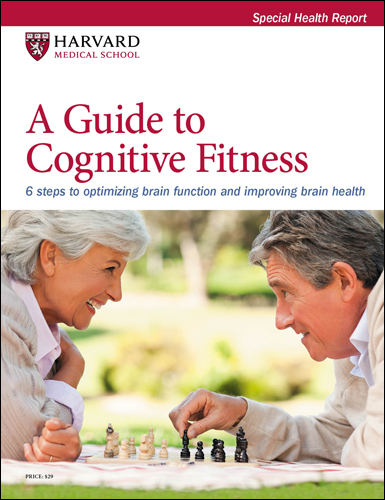Doing multiple types of activities improves cognitive health
In the journals
- Reviewed by Howard E. LeWine, MD, Chief Medical Editor, Harvard Health Publishing; Editorial Advisory Board Member, Harvard Health Publishing

Doing any one of certain activities, like staying active, stimulating the mind, and maintaining social ties, helps maintain brain health in older adults. Now, a study suggests that participating in multiple kinds of these activities may help even more.
Researchers evaluated 28 clinical trials that included 2,711 people ages 65 and older with mild cognitive impairment (MCI), a stage between normal aging and dementia characterized by problems with memory, language, and judgment. All trials compared the brain function of people with MCI who regularly pursued two or more physical and mental activities with those who practiced only one. Activity examples included exercise (strength training, balance, and high-intensity interval training), mind-body practices (tai chi and acupuncture), cognitive training (computer brain games and reading), health education (nutrition and oral care), and social outings. Each intervention lasted an average of 71 minutes and took place two to three times per week for about 20 weeks.
The researchers found that in most trials, older adults who did multiple endeavors scored higher on tests that measured cognitive skills like processing speed, memory, executive function (planning and attention), and verbal fluency (retrieving details from memory). The findings were published online May 3, 2022, by JAMA Network Open.
Image: © Klaus Vedfelt/Getty Images
About the Author

Matthew Solan, Executive Editor, Harvard Men's Health Watch
About the Reviewer

Howard E. LeWine, MD, Chief Medical Editor, Harvard Health Publishing; Editorial Advisory Board Member, Harvard Health Publishing
Disclaimer:
As a service to our readers, Harvard Health Publishing provides access to our library of archived content. Please note the date of last review or update on all articles.
No content on this site, regardless of date, should ever be used as a substitute for direct medical advice from your doctor or other qualified clinician.
















